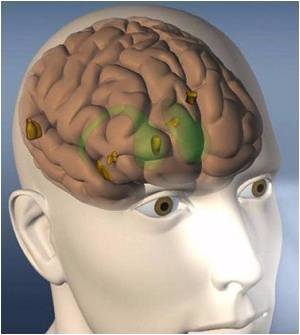
Beta-amyloid 40 and beta-amyloid 42 then accumulate, and this accumulation is considered the primary trigger for the development of Alzheimer's disease.
Dr. Stephanie A. Cosentino of Taub Institute for Research in Alzheimer's Disease and the Aging Brain, Columbia University Medical Center, New York, and colleagues studied 880 individuals who were free of dementia at the beginning of the study and who had at least two plasma beta-amyloid measurements approximately four and one-half years apart.
Participants were assessed for cognitive change using an overall thinking, learning and memory score as well as in separate memory, language and visuospatial domains.
Between the two beta-amyloid measurements, 481 participants remained cognitively healthy, 329 were cognitively or functionally impaired but did not have dementia and 70 developed Alzheimer's disease.
High plasma beta-amyloid levels at the beginning of the study, along with decreasing or relatively stable values over time, were associated with faster cognitive declines in multiple domains.
Advertisement
"Examination of specific cognitive domains in the current study revealed that global cognitive change in healthy elderly individuals was driven primarily by memory, rather than language or visuospatial abilities," wrote the authors.
Advertisement
The report will be posted online and will appear in the December print issue of Archives of Neurology, one of the JAMA/Archives journals.
Source-ANI










